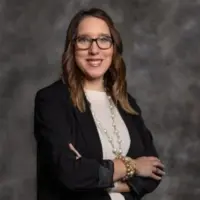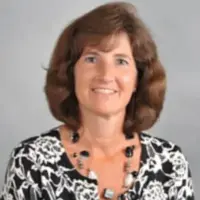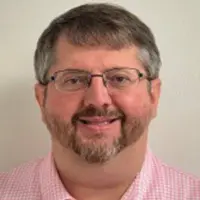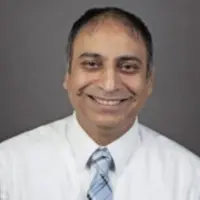About Turning Point Intensive Outpatient Center – Men
Turning Point Intensive Outpatient Center – Men in Moultrie, Georgia, is an outpatient center that offers treatment for men working through substance use disorder and mental health challenges. You’ll find programs there that can offer real tools to help you move forward while you stay connected to your daily responsibilities. Their services are thoughtfully designed to support you through structured and compassionate care.
Along with services for men, Turning Point’s outpatient clinic supports children, teens and adults who need help managing life’s challenges. The clinic offers individual counseling, family therapy and couples sessions. You can attend these sessions in person or virtually, which gives you different ways to get support that fits your situation.
Turning Point accepts a range of insurance options, including Medicare, TRICARE, Georgia Medicaid managed care and several commercial plans.
Programming for Men at Turning Point
At Turning Point you’ll attend outpatient services in a setting that’s just for men. This gives you the chance to work through recovery in a group that understands your unique experiences. We like that Turning Point separates men’s and women’s outpatient programs, which can help you stay focused during group sessions. What strikes us most about them is how they’ve built their programs to make sure you get what you need without unnecessary distractions.
Intensive Outpatient and Day Treatment Options
You can take part in the intensive outpatient program (IOP) or the partial hospitalization program (PHP), depending on the level of support you’re looking for. The IOP gives you a few hours of therapy across several days, while the PHP is available seven days a week and provides a full day of treatment. Both options are set up to help you work on substance use recovery with flexibility, so you can continue your life while building brand new skills.
Comfortable Environment
The center offers semi-private rooms, common areas and daily cafeteria meals that can meet your dietary needs. The grounds include walking areas with flower beds and a gorgeous duck pond that give you a quiet environment during your time there.
Latest Reviews
Rehab Score
Accepted Insurance

Other Forms of Payment
Self-pay involves paying for treatment out of your own pocket. You can use savings or credit, get a personal loan, or receive help from family and friends to fund your treatment. If you don't have insurance or your insurance plan doesn't cover a specific program, self-pay can help ensure you still get the care you need.
Private insurance refers to any kind of healthcare coverage that isn't from the state or federal government. This includes individual and family plans offered by an employer or purchased from the Insurance Marketplace. Every plan will have different requirements and out of pocket costs so be sure to get the full details before you start treatment.
Military members, veterans, and eligible dependents have access to specific insurance programs that help them get the care they need. TRICARE and VA insurance can help you access low cost or no cost addiction and mental health treatment. Programs that accept military insurance often have targeted treatment focused on the unique challenges military members, veterans, and their families face.
Medicare is a federal program that provides health insurance for those 65 and older. It also serves people under 65 with chronic and disabling health challenges. To use Medicare for addiction treatment you need to find a program that accepts Medicare and is in network with your plan. Out of pocket costs and preauthorization requirements vary, so always check with your provider.
Addiction Treatments
Levels of Care
Outpatient Programs (OP) are for those seeking mental rehab or drug rehab, but who also stay at home every night. The main difference between outpatient treatment (OP) and intensive outpatient treatment (IOP) lies in the amount of hours the patient spends at the facility. Most of the time an outpatient program is designed for someone who has completed an inpatient stay and is looking to continue their growth in recovery. Outpatient is not meant to be the starting point, it is commonly referred to as aftercare.
Turning Point’s Intensive Outpatient Program (MIOP) is a uniquely designed program that provides the knowledge, skills, and support to patients to gradually transition back into everyday life as healthy and productive members of society. The IOP is designed to provide longer term treatment to help patients break the cycle of relapse.
12-step programs are addiction recovery models based on Alcoholics Anonymous (AA). A number of substance abuse programs (including some drug and alcohol rehab centers) use the 12 steps as a basis for treatment. Beginning steps involve admitting powerlessness over the addiction and creating a spiritual basis for recovery. Middle steps including making direct amends to those who've been hurt by the addiction, and the final step is to assist others in addiction recovery in the same way. 12-Step offshoots including Narcotics Anonymous (NA), Cocaine Anonymous (CA), Dual Recovery Anonymous (DRA), Sex and Love Addicts Anonymous (SLAA) and Gamblers Anonymous (GA).
Completing a drug or alcohol rehab program shouldn't spell the end of substance abuse treatment. Aftercare involves making a sustainable plan for recovery, including ongoing support. This can include sober living arrangements like halfway houses, career counseling, and setting a patient up with community programs like Alcoholics Anonymous (AA) or Narcotics Anonymous (NA).
Treatments
The goal of treatment for alcoholism is abstinence. Those with poor social support, poor motivation, or psychiatric disorders tend to relapse within a few years of treatment. For these people, success is measured by longer periods of abstinence, reduced use of alcohol, better health, and improved social functioning. Recovery and Maintenance are usually based on 12 step programs and AA meetings.
A quality drug rehab in Georgia can help you overcome addiction. This environment is designed to help you address the complex issues contributing to drug dependence. The goal of treatment is to give you the tools you need to make a full recovery.
Many of those suffering from addiction also suffer from mental or emotional illnesses like schizophrenia, bipolar disorder, depression, or anxiety disorders. Rehab and other substance abuse facilities treating those with a dual diagnosis or co-occurring disorder administer psychiatric treatment to address the person's mental health issue in addition to drug and alcohol rehabilitation.
A combined mental health and substance abuse rehab has the staff and resources available to handle individuals with both mental health and substance abuse issues. It can be challenging to determine where a specific symptom stems from (a mental health issue or an issue related to substance abuse), so mental health and substance abuse professionals are helpful in detangling symptoms and keeping treatment on track.
Opioid rehabs specialize in supporting those recovering from opioid addiction. They treat those suffering from addiction to illegal opioids like heroin, as well as prescription drugs like oxycodone. These centers typically combine both physical as well as mental and emotional support to help stop addiction. Physical support often includes medical detox and subsequent medical support (including medication), and mental support includes in-depth therapy to address the underlying causes of addiction.
Programs
Adult rehab programs include therapies tailored to each client's specific needs, goals, and recovery progress. They are tailored to the specific challenges adult clients may face, including family and work pressures and commitments. From inpatient and residential treatment to various levels of outpatient services, there are many options available. Some facilities also help adults work through co-occurring conditions, like anxiety, that can accompany addiction.
Young adulthood can be an exciting, yet difficult, time of transition. Individuals in their late teens to mid-20s face unique stressors related to school, jobs, families, and social circles, which can lead to a rise in substance use. Rehab centers with dedicated young adult programs will include activities and amenities that cater to this age group, with an emphasis on specialized counseling, peer socialization, and ongoing aftercare.
Clinical Services
Research clearly demonstrates that recovery is far more successful and sustainable when loved ones like family members participate in rehab and substance abuse treatment. Genetic factors may be at play when it comes to drug and alcohol addiction, as well as mental health issues. Family dynamics often play a critical role in addiction triggers, and if properly educated, family members can be a strong source of support when it comes to rehabilitation.
Group therapy is any therapeutic work that happens in a group (not one-on-one). There are a number of different group therapy modalities, including support groups, experiential therapy, psycho-education, and more. Group therapy involves treatment as well as processing interaction between group members.
In individual therapy, a patient meets one-on-one with a trained psychologist or counselor. Therapy is a pivotal part of effective substance abuse treatment, as it often covers root causes of addiction, including challenges faced by the patient in their social, family, and work/school life.
Turning Point has expanded its program menu to meet the acute need for trauma stabilization services. This program is designed to deliver highly individualized treatment for patients severely impacted by traumatic experiences. Patients receive a full range of treatment services which includes daily group therapy, recreation therapy, and three individual sessions per week.
Amenities
-
Residential Setting
-
Private Setting
Staff & Accreditations
Staff

Heather Fuller
CEO

Peggy Yates
Clinical Director

Joseph Dean
Director of Nursing

Dr. Muhammad Mahmood Alam
Medical Director, Psychiatrist

Samantha Harrell
Therapist
Accreditations

The Joint Commission, formerly known as JCAHO, is a nonprofit organization that accredits rehab organizations and programs. Founded in 1951, the Joint Commision's mission is to improve the quality of patient care and demonstrating the quality of patient care.
Joint Commission Accreditation: Yes
Contact Information
705 5th Avenue Southeast
Moultrie, GA 31768





